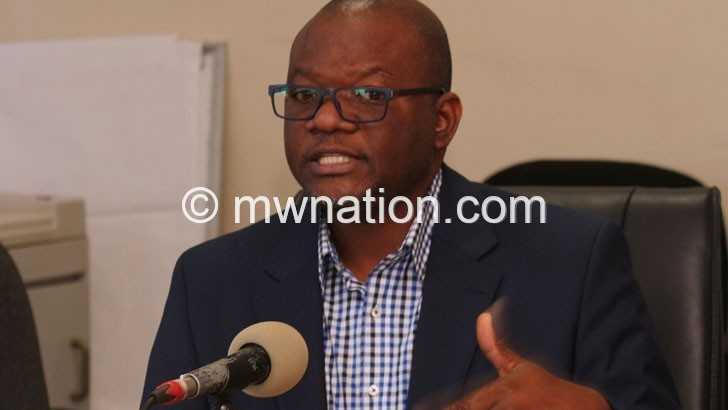House weighs in on Muluzi case
The Legal Affairs Committee of Parliament wants to engage the Speaker’s office on concerns Anti-Corruption Bureau (ACB) has been raising on the case of former president Bakili Muluzi.
The ACB director general Reyneck Matemba is on record to have said the Muluzi case, which started in July 2006, is not prosecutable but it requires a political solution.

The committee chairperson Yusuf Nthenda, who said he was also a member of the previous committee, told Nation on Sunday on Wednesday that in briefings the ACB director general had with the previous and the current committee, he has made it clear the case is not prosecutable but requires a political solution.
He said: “Mr. Matemba has told my committee he has done everything else he could have done legally, but the matter is still not prosecutable.
“I will engage the Speaker or Clerk of Parliament to check if they can pull out any records discussed previously in the Legal Affairs Committee to see how best we can come in and help.”
Nthenda said it was not making sense for the case to still appear on the case list and drain public funds when the ACB director general made it clear the case is not prosecutable.

He said they would also try to engage Minister of Justice and Constitutional Affairs Titus Mvalo and Director of Public Prosecutions (DPP) Mary Kachale for the way forward.
Back in May 2016, Matemba, then the bureau’s deputy director general and lead prosecutor of the K1.7 billion case, emotionally recused himself from the case, but explained that his personal reasons had nothing to do with Muluzi and his co-accused, Lyness Violet Whisky.
During an ACB interface with the media last Monday, the bureau issued a list of cases under prosecution, and the Muluzi case appeared, indicating that it was waiting for a ruling from the Supreme Court [on a certain application made].
Matemba, in a response to a questionnaire on Thursday, said he has made his position clear on the matter and he did not want to keep commenting on it.
“The case still appears on the list of our cases because the case is alive and in court.
“As we indicated in our update to the nation, the accused persons took the matter to the Supreme Court of Appeal. We are waiting to hear what the court will say on the issues that the accused persons raised,” he said.
The ACB director general said he was sure the Legal Affairs Committee was aware about his concerns on the case, adding records of their briefings at Parliament would tell.
“The records would clearly show the issues that we have been raising with the committee, including challenges that we have encountered along the way in as far as this case is concerned.
“For your information, these issues and challenges date back to the time before I joined the ACB, my predecessors faced and raised the same issues. I am not the first person who has raised these issues and challenges, and I am certain I will not be the last,” Matemba said.
Earlier in March 2020, he told this newspaper that the Muluzi case is not prosecutable and challenged that no one would come at the bureau and successfully prosecute Muluzi in the almost failed prosecution that has clocked over 14 years.
Actually, all presidents that came after Muluzi, the late Bingu wa Mutharika, Joyce Banda in her two-year tenure and Peter Mutharika, have seen the old man being dragged in and out of the courts, with endless court battles including some on technicalities.
The ACB boss said he knew the case inside out, explaining that when he was prosecuting it he could tell it was not going anywhere.
“I was the seventh person to prosecute that case; it doesn’t mean we were all failures and did not know our work. I had my own reasons why I recused myself from that case, which I only provided to the Legal Affairs Committee of Parliament.
“I repeat that case requires political solution backed by the law. All relevant stakeholders must be involved, that’s the ACB, Director of Public Prosecutions, the court and Parliament through Legal Affairs Committee,” Matemba had suggested.
The ACB director general said there are legal procedures that guide the process to have a case discontinued, explaining that the bureau writes to the DPP, providing legal reasons.
“If the Director of Public Prosecutions is satisfied, a certificate of discontinuance is issued. Once the DPP does that, he/she writes a report to Legal Affairs of Committee of Parliament,” Matemba had explained.





